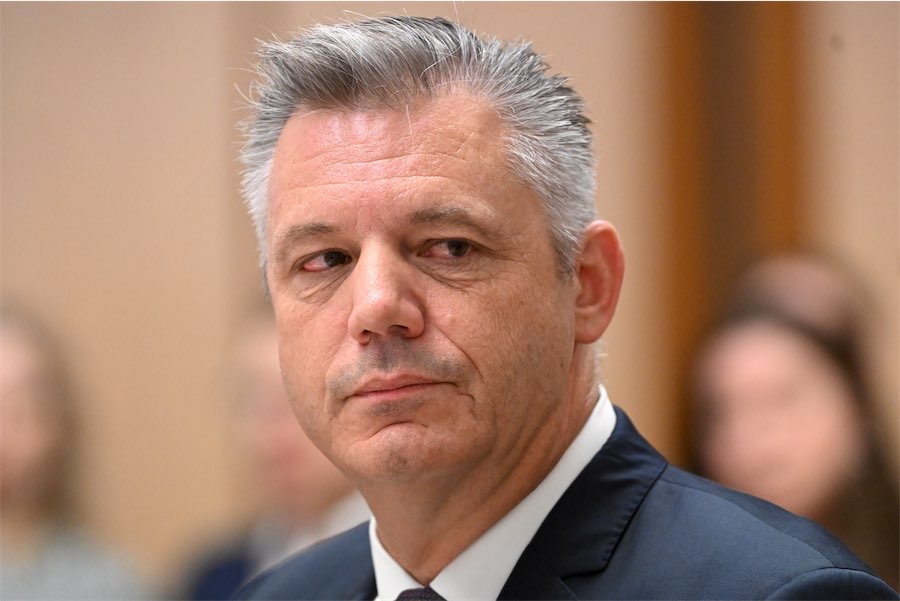By Ian McAuley, University of Canberra
THE proposed sale of Medibank Private is not popular, but as I wrote last year, and as Finance Minister Mathias Cormann points out, it’s hard to find public policy grounds to justify ongoing public ownership.
Investors will be concerned, however, by the uncertain policy environment the privatised entity will face. Some investors, remembering the returns from privatisations of the Commonwealth Bank and the Commonwealth Serum Laboratories, will leap in with enthusiasm. Others will carefully weigh up the policy risks.
An attractive business
Valuing Medibank should be straightforward exercise. It’s the largest firm in a growing market, with professional governance and management, and with a strong regulatory regime protecting it against the risk of “adverse selection” – the possibility that it will suffer the burden of a pool of older members making high claims. Medibank has an older membership than its competitors, but is able to draw from the industry’s Risk Equalisation Trust Fund to which funds with younger membership must contribute.
Its balance sheet is healthy: it has insignificant non-current liabilities; and its net assets of A$2.7 billion at the end of last financial year included $0.9 billion of cash. Talk in the market is of a value of up to $5 billion. With a profit last year of $233 million that implies a price to earnings ratio of around 20:1 – high by general standards, but not for a firm in a secure market.
But how secure is that market, and how assured are its profits?
Three policy scenarios
The fortunes for the private health insurance industry depend heavily on government policy. Hardly a year goes by without some policy tweak, most recently the Gillard government’s decision (after a struggle in Parliament) to apply a means test to the private health insurance rebate, remove the rebate on lifetime health cover loadings, and increase taxation incentives for those with high incomes to hold insurance. In addition, each year the health minister sets allowable insurance premium increases.
It’s impossible to list all policy scenarios for private health insurance, but they can be gathered into three possibilities – “business as usual”, “increased support” and “fundamental review”.
The “business as usual” scenario would be a continuation of the favourable environment the industry has enjoyed since the Howard government was elected in 1996. Since the introduction of “lifetime cover” in 2000, health insurance policy has been generally stable through Coalition and Labor administrations, apart from tweaks such as those mentioned above.
A scenario more favourable to the industry is of increased support. When in opposition, Tony Abbott said the private health insurance rebate was “an article of faith for the Coalition”, that it was in “our DNA”, and he promised to restore it when in government as soon as possible. That’s hardly a rigorous economic argument, but it has been a consistent theme.
Also, sitting on shelves in the Department of Health is the 1999 Report of the Health and Hospitals Reform Commission, flagging a scheme called Medicare Select, which would essentially see private health insurance made compulsory, with all government funding churned through insurers that would take a cut of funds on the way through.
The present political climate would appear to favour one of these scenarios, but by the time Medibank is floated an election will be no more than 18 months off. Although many in the commentariat assume a “two term government”, a re-elected Coalition is not assured. Nor is there any certainty that an incoming Labor government would be as supportive of private insurance as was the Rudd-Gillard Government, which never had Senate control and was generally timid about fundamental reform.
Investors should realise that private health insurance is highly subsidised. Direct budgetary subsidy this year will be $5.3 billion, with an additional $1.6 billion in the form of exemption of the private health insurance rebate from taxation. In addition there is substantial taxation revenue foregone as a result of people taking out insurance to avoid the Medicare Levy Surcharge.
By the standards of any industry these are huge subsidies, and unlike the automobile and other manufacturing industries the economic justification for assistance to private health insurance has never been subject to a Productivity Commission review. (There was a Productivity Commission reference and report in 1997, but this was only about how private health insurance should be subsidised, not whether it should be subsidised.)
What research shows, however, is that private health insurance is an expensive way to fund health care. To the extent people wish to share their health care costs, the most equitable and efficient means is through a single national insurer, like Medicare.
The third scenario, a fundamental review of private health insurance, would most probably see a recommendation to end all subsidies. A market-oriented government may opt for a higher level of co-payments before the safety net of Medicare cuts in, while a collectivist government may opt for a completely free system. Both are economically justifiable but private health insurance carries all the costs of competition and none of its benefits.
The risk for investors in the Medibank privatisation, therefore, is an outbreak of economic responsibility in public policy leading to more equitable and efficient means of funding health care through a single national insurer. Perhaps it’s not such a great risk.
![]()
Ian McAuley does not work for, consult to, own shares in or receive funding from any company or organisation that would benefit from this article, and has no relevant affiliations.
This article was originally published on The Conversation.
Read the original article.
[Photo by Christian Haugen, Attribution Licence]
Who can be trusted?
In a world of spin and confusion, there’s never been a more important time to support independent journalism in Canberra.
If you trust our work online and want to enforce the power of independent voices, I invite you to make a small contribution.
Every dollar of support is invested back into our journalism to help keep citynews.com.au strong and free.
Thank you,
Ian Meikle, editor





Leave a Reply